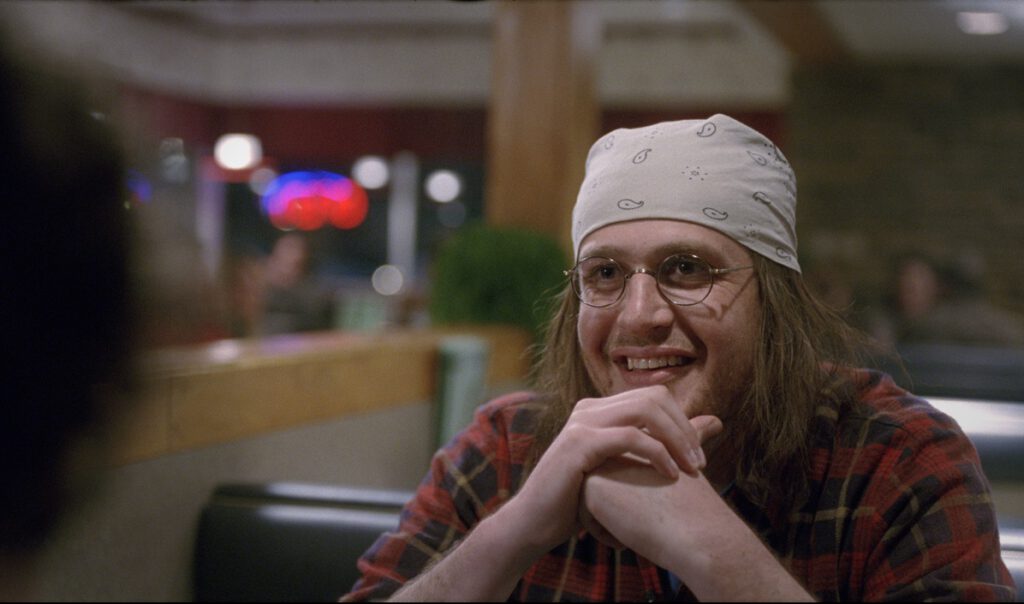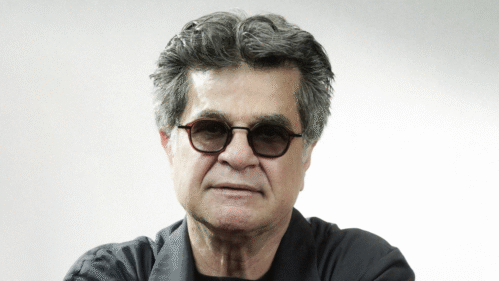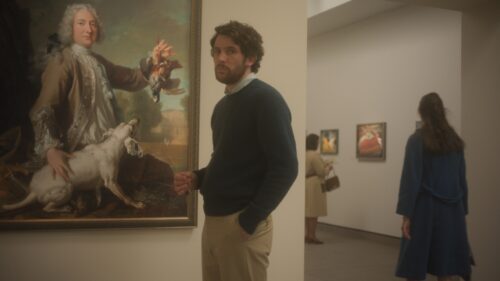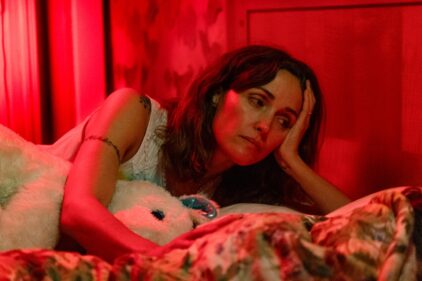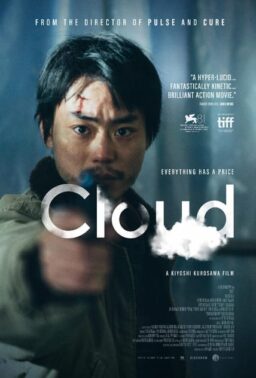In 1996, David Lipsky convinces his editor at Rolling Stone to let him do something
unfamiliar to the magazine—run an interview with a famous author. While it’s
almost even less imaginable in today’s world of reality stars than it was in the
‘90s, there was a writer of that era who rose to such a high level of acclaim
that his name became a household one: David Foster Wallace. While the author of
“Infinite Jest” was finishing up a tour to promote his book, Lipsky tagged
along, recording the interview that took place over the next four days, and
turning that into a book in 2010, two years after the death of Wallace.
Lipsky’s book has been brilliantly adapted by Donald
Margulies and director James Ponsoldt (“The Spectacular Now”) into “The End of
the Tour,” which received raves at Sundance and Ebertfest, and will finally be
released this Friday, July 31st. Jesse Eisenberg stars as Lipsky,
but the film belongs to Jason Segel’s portrayal of Wallace. He disappears into
the controversial role, finding dramatic depth he hasn’t really displayed
before. He sat down with us in Chicago this week to discuss “The End of the Tour,”
privacy, fear, and the other emotions that drive actors.
I saw the film at Sundance
and Ebertfest and the Chicago Critics Film Festival, and it led me to wonder
what it’s like to live with a film so long. Since it premiered in January, how
has your experience with “The End of the Tour” changed over the last six months?
Well, what the past six months have been, which has been
really interesting, has been going to a lot of smaller film festivals in small
towns and screening the movie for people outside of the movie industry.
Sundance, to some extent, is an inside baseball venue. What has been the most
exciting thing is that the movie’s themes resonate with people outside of the
industry. The pitfall is that in the hands of any other director, this is just a
movie of two smart guys saying smart things back and forth. Going into
Sundance, honestly, there’s this fear…there’s no big plot movements, and if you’re
not into it in 20 minutes, it’s not like something is going to happen to change
that. You have to really be locked in. Does it matter if you know or don’t know
who David Foster Wallace is?
Was that your biggest
concern?
Yeah. Of course. It’s the big question of a movie of this
size—will people care if they don’t care about David Foster Wallace? It’s not a
cradle to grave biopic. It’s just these four days. What it really rests on is
creating this character tension between two guys. Between Donald Margulies
curating the actual interview into a narrative and James Ponsoldt creating tension
out of active listening. It’s really hard to do.

When you find out you’re
playing a real person, what’s the first step you take in terms of process?
You read and you read and you read. There’s personal stuff
of getting over fear.
For you? Playing a
real person?
Playing a real person, playing this specific person,
tackling material like this. Spending a little time to get to a point where you
can proceed apologetically.
What keeps you from
that point? Were you concerned about taking a private life public to a certain
extent? Is that a concern for you as an actor when you play a real person?
I certainly have sensitivity to the fact that this is a man
who has passed away. And has people who love him in varying capacities. That I
have a lot of sensitivity and empathy towards. I think I have a unique
experience in being recognizable since I was 17 years old. I have a unique
point of view on what is private and what is public and things like that. I
felt like when I read the script that the movie was an extension of the themes
of “Infinite Jest.” It was echoing sentiments and ideas that David Foster
Wallace was trying throughout his entire career to communicate, all the way up
through “This is Water,” the famous commencement speech he gave—he was really
passionately saying, “I’m in it with you guys. I’m not preaching at you. What
my experience is that I have placed my value in some things—pleasurable entertainment—and
found myself empty in some way. Does anybody else want to join me in this
conversation?” That is what this movie is. And so I felt comfortable.
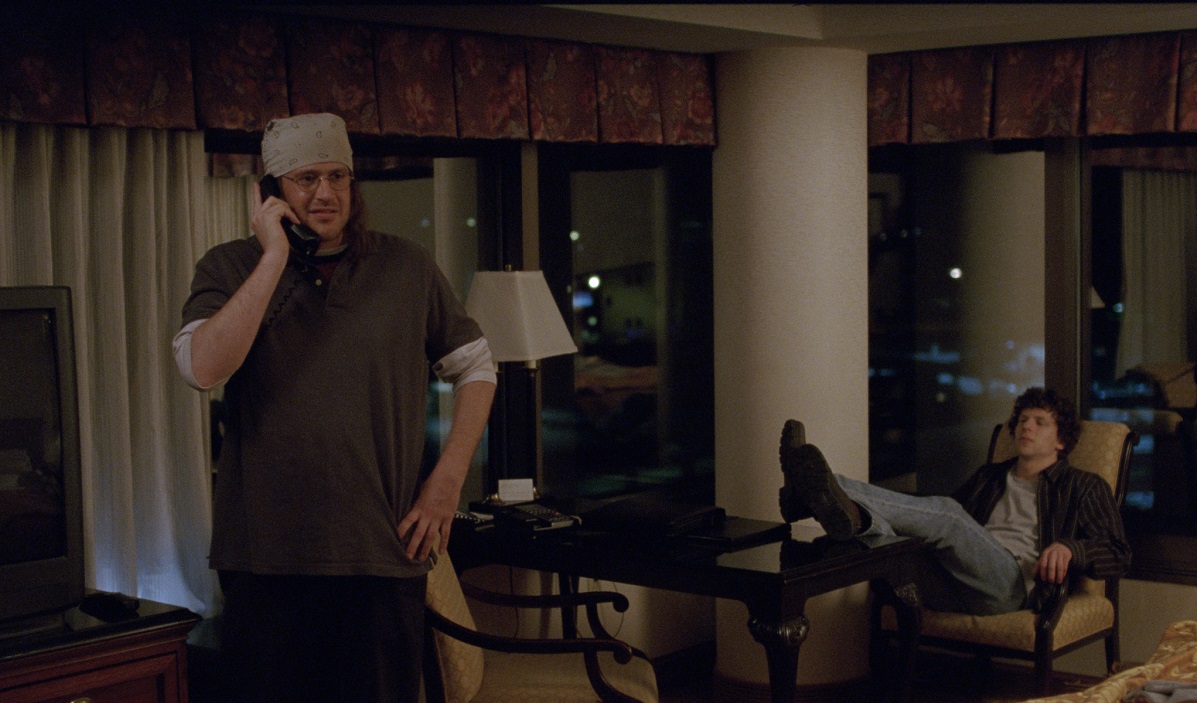
So a way to get past
that fear is to continue a conversation that he started.
I think that helped me zero in on how to play the part. I
think the fear is personal inadequacy feelings.
Does that happen
every time?
No, but it is important, I’m realizing.
Why?
I think it’s a really important element. I think that when I
am at my best is when I am challenging my capacity for honesty. If I’m in my
comfort zone, I’m going to be retreading material. It’s not going to feel
vital, I’m realizing having done elements of both. “Forgetting Sarah Marshall”
was a deeply honest depiction of where I was at 24. And you can feel that. You
can feel that it’s now. And when I
read “The End of the Tour,” it was bullseye on where I was at that moment in my life at 34. You’re
thinking about different stuff. I had just come to the end of “How I Met Your
Mother.” I was starting to feel a strain between what I was doing and what I
was interested in. The show came to a natural end…
And you were seeking
something more challenging?
One, I was seeking something more challenging. Where I
actually was was very similar to a line in the movie in which David Foster
Wallace says, “Now, I have to face the fact
that I’m 34 years old, alone in a room with a piece of paper.” That’s what
I felt like. At 34 years old, I now have to answer that fucking question, “What’s
next?”
The movie also taps into something culturally. You’re being
communicated to from a very young age that life will be some variation on
working hard during the day so you can come home and crack a beer and watch TV.
A big TV in a big
house with a big car.
That’s right.
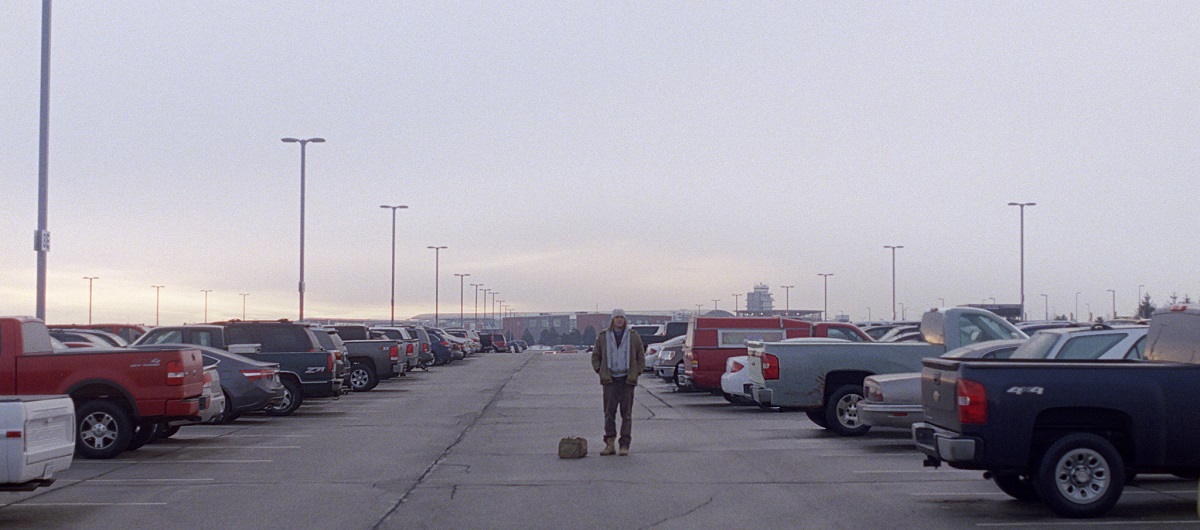
Speaking of TV, you
have a lot of experience on it and I’m curious how it changes you as an actor.
How do you think it impacts the way you approach a project like this one?
I felt a bit of a strain in that I was simultaneously part
of two groups. I was part of my TV show and I was making movies with the Judd
Apatow crew. The Judd Apatow energy is pushing the boundaries of comedy. And
the nature of a TV show is that you can check in at any time and it’s familiar.
They’re really antithetical in a lot of ways. It doesn’t mean that you don’t
have a Venn Diagram of what is funny, but the nature of the experience is just
really different.
It isn’t until I had some distance from the TV show that I
was able to look at it and realize it had tremendous merit that I, at the time,
didn’t give it full credit for. With the show ending and traveling around, and
seeing that people love the show in some really important ways—that show got me through college; that show got me through Iraq—it was a
big learning, “Grow Up Kid” kind of lesson.
It’s interesting that
you talk about the comfort food aspect of television when that’s something that
certainly was a subject of David Foster Wallace’s. Does that intersection have
an impact when you’re playing this person who was addicted to something that
you were a part of ten years?
I think there’s a lot of kismet about everyone’s involvement
in this movie. It seems to have come together in a really special way.
You’re a writer too.
How much writing impact did you have on set?
It wasn’t really necessary. First of all, the dialogue was
coming almost verbatim from the tapes. And Donald Margulies is a genius. Simple
as that. There were some moments when what was happening between us was different
than what we anticipated might happen. And so there would be adjustments. But
no plot changes. Just occasional line tweaks like I’m more irritated here than I thought I might be.
And James allows
that?
Yeah. Everyone has an equal voice on James’ sets. It’s a
really important thing when you’re making movies.

Is he different in
that regard than other people you’ve worked with?
I don’t want make it comparative, but I’ll tell you this:
when you’re making a movie for $3.5 million in negative-15 degrees in the Polar
Vertex, you better treat everybody like this is a team. You’re there because
you love it and because you love movie-making. On a movie like this, there’s
literally no other reason to be there. James makes sure everyone involved feels
like an equally valuable member of the team.
Do you know what you’re
doing next?
Nope. It’s been really important to me to make really
deliberate choices about what I do. And what I do next I want to be reflective
of “The End of the Tour.” So I have to wait until people can see it. I’ve felt
a year ahead. But now it’s finally coming out.
Before I go, I almost
forget, how method are you? Do you stay in character as David on set or do you
pop back to Jason?
I think that Jesse and I share a point of view on this—by the
time that I arrived, I had done enough prep that the question almost doesn’t
apply. I certainly didn’t make anyone call me “David.” It didn’t feel in any
way necessary to me. Everyone has their own process. By the time I arrived, I
was in a very particular mood. (Laughs.)

